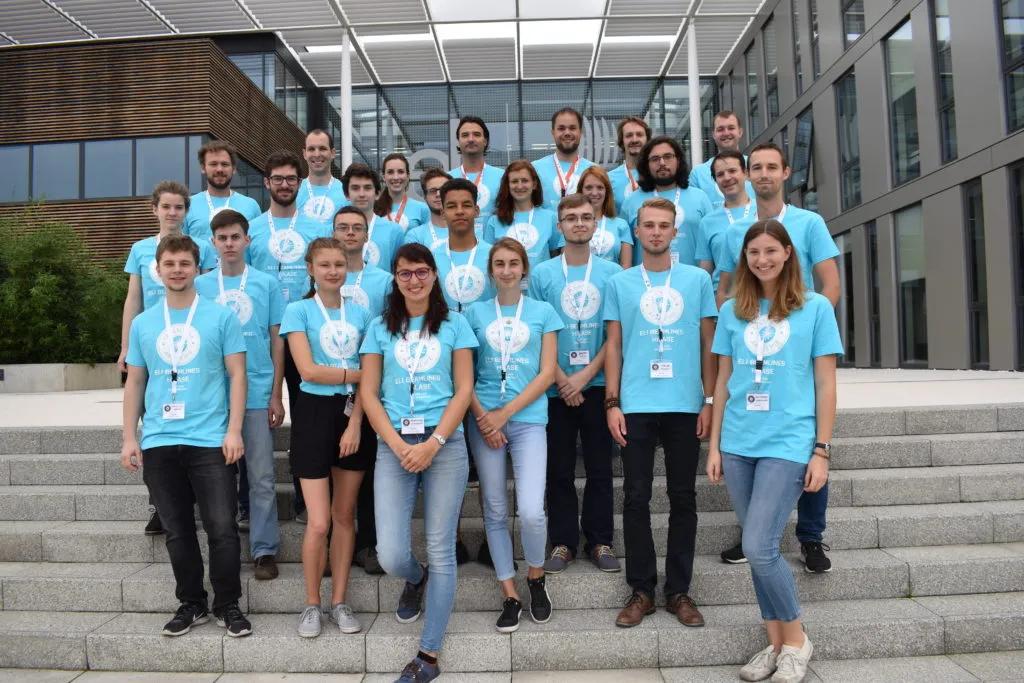The ELI Beamlines and HiLASE laser centres situated in Dolní Břežany will offer students of secondary schools an opportunity to enrol to the Talent Academy for the third time. They will be able to try what it is like to work as researchers at professional laboratories. This unique way is how the two top scientific centers of the Institute of Physics help contribute to the bringing up of another generation of scientists. The best participants of the Talent Academy will be offered further cooperation by the laser centers in the form of internships during which students will be able to engage in real scientific projects working together with leading laser physicists.
In this year’s Talent Academy the students will be concentrating on the detection of various spatial arrangements of molecules. Some molecules naturally occur in various spatial arrangements such as left-handed and right-handed helices or as mirror images of such arrangements. This has huge impact on metabolic processes in living organisms where only such a molecule may fit in complex macromolecular reactions to complete the missing piece of the puzzle which has the required spatial arrangement. This is key, for example, in the manufacture of drugs. While preparing a drug – for it to correctly function and not to have an entirely adverse effect, at worst, on the human organism, it is not only the correct composition of the drug which must be paid attention to but also the spatial arrangement of individual molecules. "Individual spatial arrangements of molecules may be distinguished from one another e.g. by means of a laser beam because each of the arrangements turns the polarization plane in a different way. During the Talent Academy, students will, therefore, be asked to design a compact system enabling the measurement of such polarization and to use the system to analyze a variety of biochemical samples. In doing so, they will need to combine their knowledge of physics, chemistry as well as biology," explains the topic of this year’s Talent Academy Zbyněk Hubka, an ELI Beamlines scientists. The fast and precise detection of spatial forms of molecules has significant potential for an application not only in the pharmaceutical industry, but also in the food industry, for example, in the production of beer.
The main objective of the Talent Academy is to introduce to students of secondary schools the actual research work. It starts with a literature review, continues with the design and the implementation of an experiment and ends with the delivery of results to experts as well as the public. "I joined the Talent Academy to find out what it is like to work in a real research facility and whether I would enjoy it. I admit I was a bit sceptical as I thought it might be boring to just do some readings of devices – but I was amazed at how very creative the design and implementation of an experiment can be and there is no way it is boring," describes her experience Mariana Ochodková, the participant of the last year’s Talent Academy.
The Talent Academy is exceptional with its individual approach and independence which is what organizers – in relation to their participants – place a great emphasis on. It all begins with a research topic; students learn how to work with the required scientific instruments and study the basic procedures. Then it is just up to them and their teams what working method they propose, how they conduct individual experiments and process any acquired data. Scientists in the laboratory only guide them in the process and help them adjust their ideas to match the existing state of science and technology.
ELI Beamlines and HiLASE centres also use the Talent Academy to search for any future research workers. "Young people need to be attracted to research work as early as possible because attempting to do so after they enrol to a university, is usually too late. At the Talent Academy, we select the best secondary schools students for further cooperation. We believe that this approach will help us maintain the high quality of our scientific team for it to generate new discoveries and innovation," added Tomáš Mocek, the head of the HilASE centre.
More information:
www.fzu.cz/talentova-akademie
www.facebook.com/TalentovaAkademie


